#Meriel Buchanan
Explore tagged Tumblr posts
Text


Article in The Sphere from 1930 featuring photos of the Imperial Family.
The text is provided by Meriel Buchanan, the daughter of the British ambassador to Russia. About the grand duchesses, she writes:
In spite of the old fashioned dresses and dimness of so of the pictures one can distinguish the Grand Duchess Olga with her fair piquant loveliness, the frank directness of her laughing eyes; the Grand Duchess Tatiana, beautiful in a more restrained, exotic way; the Grand Duchess Marie, nicknamed by her sisters 'Fat Little Bow Wow'; the Grand Duchess Anastasia, a laughing imp of mischief, always in some kind of scrape, rather an enfant terrible, but a loveable one. One sees them here in these pictures, a laughing group of young girls, sincerely devoted to one another, sharing each other's amusements, joys and sorrows, one thinks of the jokes they played, the secrets they whispered to one another, the joint name they shared, 'Otma' composed out of the four initials of their names.
shout out to @ella-indigo for letting me know about this one!
#romanov#otma#olga nikolaevna#tatiana nikolaevna#maria nikolaevna#anastasia nikolaevna#alexei nikolaevich#nicholas ii#alexandra feodorovna#meriel buchanan#old magazines#the sphere
41 notes
·
View notes
Text
"Fleeting memories come back to me of those cloudless summer days. Pictures of the Emperor and his daughters at the Garden Party at Tsarskoe, the little Grand Duchess Anastasia, her cheeks scarlet with excitement, surrounded by a group of midshipmen, plying them with eager questions. “You will take me up into your conning tower,” her clear childish voice rang out above the hum of conversation. “Couldn’t you let off one of the guns and just pretend it was a mistake?”
The Grand Duchess Olga, her eyes the colour of the blue flowers in her hat, gazing up at a tall lieutenant-commander, who was explaining the way in which a ship was navigated."
-- Meriel Buchanan, Ambassador's Daughter

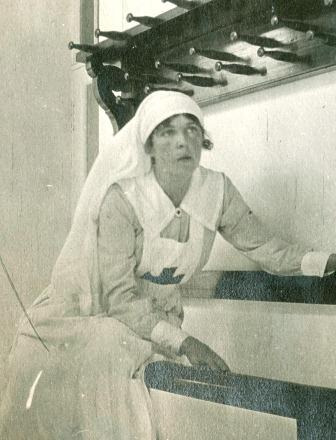
#Anastasia Nikolaevna#Alexei Nikolaevich#Romanov#Romanov family#Anastasia Romanov#sources#Meriel Buchanan#Ambassador's Daughter#having fun#Olga Nikolaevna#my own#image desc in alt text
41 notes
·
View notes
Text
Meriel Buchanan, “Pietrogrado città della rivolta 1914 - 1918”. Prefazione di Hugh Walpole - Traduzione di Silvia Rotondo - Lorenzo de' Medici Press
Meriel Buchanan, “Pietrogrado città della rivolta 1914 – 1918”. Prefazione di Hugh Walpole Traduzione di Silvia Rotondo Lorenzo de’ Medici Press Nella serie di volumi che documentano le opere di scrittrici che sono state testimoni innovatrici del proprio tempo, per la prima volta in italiano, il volume che la figlia dell’ambasciatore inglese scrisse subito dopo lo scoppio della rivoluzione…
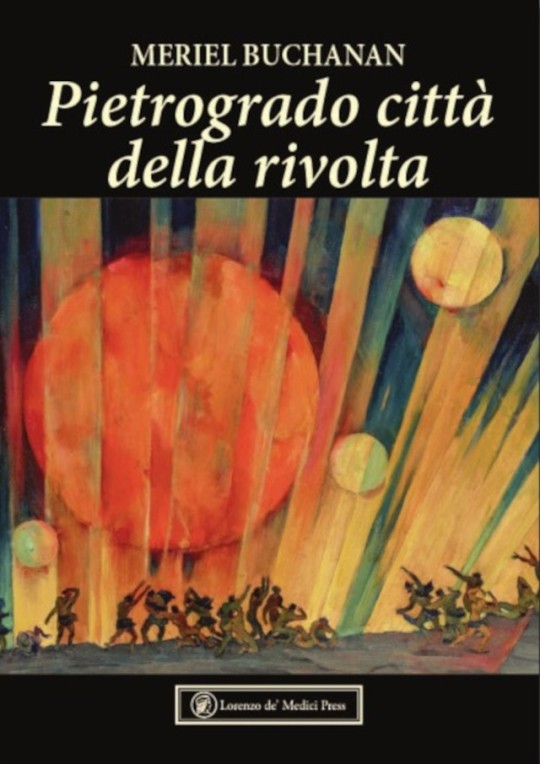
View On WordPress
#LdM Press#Lorenzo de’ Medici Press#Meriel Buchanan#Pietrogrado città della rivolta#Pietrogrado città della rivolta 1914 - 1918#refazione di Hugh Walpole#Russia#Traduzione di Silvia Rotondo
0 notes
Note
Romani people have always seemed to me as unique beauties. Especially the children of Tsar Nicholas I and Tsar Nicholas II were wonderfully beautiful. My question is the famous dark blue eyes of the Romanovs, which are known to everyone. Are there any quotes about these eyes, which are admired and praised by everyone? Were their eye colors really that perfect? Thanks in advance for your answer 🤗
Hi! Here are a few quotes for you:
"Her eyes have that unusual sparkle which poets and lovers describe as heavenly." - Dutch General Friedrich Gagern on Grand Duchess Olga Nikolaevna (1822-1892)
"... a tall and slender blonde, a perfect beauty, with the profile of a cameo and big blue eyes." - A.I. Sokolova on Grand Duchess Olga Nikolaevna (1822-1892)
"She was slightly above the medium height, with a fresh complexion, deep blue eyes, quantities of light chestnut hair, and pretty hands and feet." - Yulia "Lili" Dehn on Grand Duchess Olga Nikolaevna (1895-1918)
"Extremely pretty, with brilliant blue eyes and a lovely complexion, Olga resembled her father in the fineness of her features, especially in her delicate, slightly tipped nose." - Anna Vyrubova on Grand Duchess Olga Nikolaevna (1895-1918))
"She had not the regular features, the almost mystical beauty of her sister, Tatiana Nikolaevna, but with her rather tip-tilted nose, her wide laughing mouth, her sparkling blue eyes, she had a charm, a freshness, an enchanting exuberance that made her irresistible." - Meriel Buchanan on Grand Duchess Olga Nikolaevna (1895-1918)
“... very tall, slender as a reed, [with] an elegant cameo profile, grey eyes and brown hair. She was fresh, clean and fragile, like a rose." - Lili Dehn on Grand Duchess Tatiana Nikolaevna
“Certainly she was a different type from the others even in appearance, her hair being a rich brown and her eyes so darkly gray that in the evening they seemed quite black... " --Anna Vyrubova on Grand Duchess Tatiana Nikolaevna
"She had beautiful, regular features, and resembled some of the beauties among her royal relatives, whose family portraits decorated the palace. Dark haired, pale, with wide-set eyes – she had a poetic, faraway look that did not fit her personality.” -- Anna Vyrubova on Grand Duchess Tatiana NIkolaevna.
"A real beauty, with enormous blue eyes." - Grand Duchess Maria Alexandrovna on Grand Duchess Maria Nikolaevna
“Marie Nicolaevna was like Olga Nicolaevna in colouring and features, but all on a more vivid scale. She had the same charming smile, the same shape of face, but her eyes, ‘Marie’s saucers,’ as they were called by her cousins, were magnificent, and of a deep dark blue. " - Baroness Sophia Buxhoeveden on Grand Duchess Maria Nikolaevna
“… tall, healthy, with sable eyebrows and a bright blush on her open Russian face; she was especially lovely to a Russian heart… her eyes illuminate her entire face with a unique, radiant luster; they sometimes seem black, as long eyelashes throw shadows over the bright blush of her soft cheeks. She is merry and alive, but she has not yet awakened completely to life; probably concealed in her are the immense forces of a real Russian woman.” - Sofia Ofrosimova on Grand Duchess Maria Nikolaevna
"Her features were regular and finely cut. She had fair hair, fine eyes, with impish laughter in their depths, and dark eyebrows that nearly met." - Baroness Sophia Buxhoeveden on Grand Duchess Anastasia Nikolaevna
"... her eyes, exact copies of the soft blue eyes of her father." - Gleb Botkin on Grand Duchess Anastasia Nikolaevna
51 notes
·
View notes
Photo

“...the only time I saw her (Princess Zenaida Youssoupoff), during the years we were in Russia, was at the wedding of her younger son to Princess Irina, daughter of the Grand Duchess Xenia and of the Grand Duke Alexander Michailovitch. Her dark hair, already flecked with silver, under the hat of a pale colored violets, and dressed all in pearl grey satin, with a few beautiful diamonds gleaming among the tulle's and laces, she stood there smiling faintly as the long line of guests filed before the bride and bridegroom. Her thoughts seemed very far away; standing close besides the Emperor, and the tall handsome , bearded figure of the Grand Duke Alexander, she seemed to belong to another world, to be spirited from the past, in that grey and silver dress, with that look of ineffable sadness in her still lovely cornflower blue eyes.
It was, I remember, a very magnificent wedding, attended by the Emperor and all the Imperial family. The bride, with the classical purity of her features, was very beautiful , the bridegroom in his gold-braided coat was very good-looking; there was a glitter of jewels and decorations , of brilliant uniforms, and women’s gaily colored dresses. And yet, somehow there was at the same time a strange feeling of doom and impending tragedy, as if the menace of the coming years was already casting a shadow on all the people assembled in that brightly lighted room, while outside the windows the snow-covered streets, the frozen river, the teeming millions of peasants and workers , waited breathlessly for all the splendor to pass away.” -Meriel Buchanan, Ladies of the Russian Court
#Princess Zenaida Yusupov#Princess Zenaida Youssoupoff#Princess Zinaida Yusupova#Prince Felix Youssoupoff#Prince Felix Yusupov#Princess Irina Alexandrovna of Russia#Princess Irina Youssoupoff#Russian Nobility#Meriel Buchanan#Yusupov#Yussupov#Youssoupoff#Youssoupov
58 notes
·
View notes
Text
After a gala reception on March 14, 1622, “Marie [de Luynes] thought it would be fun if they ran through the great hall of the Louvre. Although Anne did not wish to run, Marie and Mademoiselle de Verneuil took her each by the arm and ran with her down the length of the hall. The great room was not lit, and Anne stumbled on the dais that surrounded the throne–stumbled and fell” - Anne of Austria by Ruth Kleinman
“Laughing and chattering merrily together, their wide skirts billowing around them, the three girls--for all of them were still in their early twenties--walked arm in arm across the shining, polished floor, when suddenly, urged by a thoughtless impulse, Marie de Luynes broke nto a run: ‘Come on, Your Majesty, a race,” she cried merrily....In the dim uncertain light Anne stumbled over a footstool, placed in front of the King’s empty throne of State; instead of holding on to her, Mademoiselle de Verneuil let go of her arm, and the little Queen fell heavily to the ground....Care and solicitude and hastily-applied remedies all proved in vain, and on March 16th it was officially announced that the Queen had had a miscarriage, though various accounts of the accident that had caused this misfortune were spread about, and nobody dared tell the King what had really happened” - The Infanta Queen by Meriel Buchanan
#but SOMEone snitched#prob wanting to get marie fired which she basically was#tho tbh she was...not a good friend#anyways the Shade that meriel throws at#marie's Thoughtlessness#and de verneuil INSTEAD of holding on to her Let Go#*sad sigh*#anne d'autriche#history#french history#today in history#(i keep forgetting to use that tag)#ruth kleinman#meriel buchanan#shannon sobs over sweet serafin
1 note
·
View note
Note
Hi! I’m sorry if this is a vague question, but you seem to be the most knowledgeable person to ask.
What, exactly, was the social calendar of the Imperial family like? What sort of engagements occupied their time, I mean. I’ve heard obscure references to court processions, blessing of the waters, even a swearing in for the Tsesarevich at 16, but I can’t find any real sources for these. If true, what were these ceremonies like? Any recommendations for books or articles that cover this topic are greatly appreciated!
Hey, that's very kind of you to say so!
It is a very broad question since throughout the year they attended all sort of ceremonies, including military reviews, balls, unveiling of monuments, religious holidays (Epiphany, Easter...), receptions of foreign dignitaries, and so on. Parades were organised on various occasion: military anniversaries to honour military victories, imperial birthday, visits from foreign delegations/monarchs, church parades... There were also the celebrations of the Orders which took place on the saint's day like the Order of St Alexander Nevsky, the Order of St Andrew the First-Called, the Order of Saint-Catherine....
As for the Blessing of the Waters, it was an annual ceremony held every Epiphany on January 6. A wooden pavillion was built for the occasion with, close to it, a hole cut into the ice. When the Emperor and the clergy arrived, the Metropolitan would blessed the Neva in dipping a cross three times in the river. In the past, it had been traditionally celebrated on the banks of the Moskva. After the religious ceremony, a banquet was served at the Winter Palace. For many years, it was one of the most important court ceremonies. If my memory is correct, Meriel Buchanan gave a description of this ceremony in her Recollections of Imperial russia.
The ceremony of the Tsar's oath was held when the heir of the throne reached his majority. The Tsesarevich swore an oath to the throne, promising to serve faithfully Tsar and country. I made a post few years ago, detailing this particular ceremony (x).
As for books recs I would recommend :
Scenarios of Power: Myth and Ceremony in Russian Monarchy. Volume One: From Peter the Great to the Death of Nicholas I and From Alexander II to the Abdication of Nicholas II by Richard S. Wortman. He made an abridged version: Scenarios of Power: Myth and Ceremony in Russian Monarchy: From Peter the Great to the Abdication of Nicholas II. (a serious and thorough scholarly book, truly a great read!)
At the Russian Court: Palace and Protocol in the 19th Century by Hermitage Amsterdam. (BEAUTIFUL book, you won’t be able to put it down)
The Winter Palace and the People: Staging and Consuming Russia's Monarchy, 1754–1917 by Susan McCaffray (has some interesting info!)
The Court of the Last Tsar: pomp, power, and pageantry in the reign of Nicholas II by Greg King. (i always been a bit wary of this author but it's one of the few book about this subject in English)
Then you have the account of the time: Muriel Buchanan Recollections of Imperial russia, A. A. Mossolov At The Court Of The Last Tsar, Alexander Grabbe The private world of the last Tsar and the like.
21 notes
·
View notes
Text
1900
Meriel Buchanan’s memories
Headstrong and passionate by nature, and married to a man she had never really loved, the Grand Duchess rebelled against the ties that bound her, the restrictions that surrounded her, she refused to take the necessary precautions when she once more became pregnant, and was heart-broken when the baby, which would have been a boy, was born prematurely. It was impossible to keep anything secret for long in a little town like Darmstadt, where everybody knew everybody else's business, almost before they knew it themselves. The strained relations between the Grand Duke and his wife soon became a subject for comment and conjecture, not only in Court and military circles, but at the afternoon gatherings, where old ladies met to drink cups of coffee, topped with whipped cream, and discussed the latest rumours in sibilant whispers.
The Grand Duchess was in love with this handsome cousin of hers. Oh, a remarkably good-looking man, someone had seen his photograph and had been quite overcome. The Grand Duchess had let that black horse of hers loose in the courtyard at Wolfsgarten, and the animal, which was really wild, had made straight for the Grand Duke, and torn a piece out of his trousers, whereupon, she had just laughed. One afternoon, it was said, her husband had come into her room, whistling a tune which was in his head, when she asked him to stop, and he had not done so, in a fit of ungovernable rage she had thrown down a whole tea-table laden with china.
It was said that the Grand Duke was paying visits to a certain lady in town. It was said that the Grand Duchess had been furious because she had found him in bed, writing poetry, on a lovely summer's day. It was said that she had called him a coward because he had refused to go out with her in the dog-cart, when she was driving her six white horses.
source: Queen Victoria’s Relations, by Mariel Buchanan
image: eBay

14 notes
·
View notes
Text
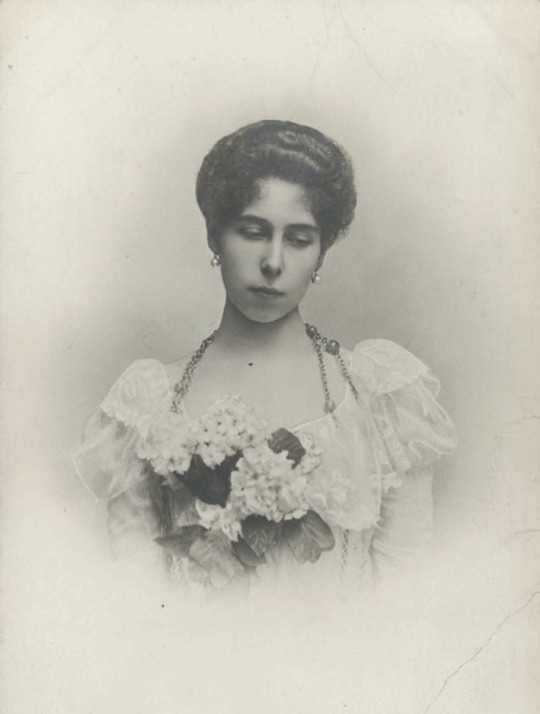
Grand Duchess Victoria Melita of Hesse and by Rhine, mids 1890s.
Her "dark, sallow complexion," was, however, contrasted with that of her sister Marie's "brilliant colouring" and "radiant animation." "But had a certain' regal magnificence that made her outshine every other woman in the room; strangers immediately asked who she was," wrote Meriel Buchanan.
#grand duchess victoria melita of hesse-darmstadt#hesse#hesse-darmstadt#german royalty#german royal#mids 1890s#1890s
22 notes
·
View notes
Text

Grand Duchess Olga Nikolaevna Romanova of Russia at Tsarskoe Selo in 1913.
At the time of this photo she was 18,Olga died at aged 23. During that era ~ whether it was arranged or for love,females married young.If she did she could have escaped the horror that was to come.Her own mother,the Empress Alexandra Feodorovna of Russia was considered old at aged 22 when she married.
Her marriage prospects
•Prince Ioann Konstantinovich Romanov of Russia fell in love with Olga. When he was 16, he attended Alexei's christening in 1904 and met the 9-year-old Olga. He reflected that “I was so enraptured by her I can’t even describe it. It was like a wildfire fanned by the wind. Her hair was waving, her eyes were sparkling, well, I can’t even begin to describe it!!”. In 1908, he traveled to the Crimea "only out of hunger to see Olga." He admitted his feelings to Olga's parents, but they rejected him. He told his father, "They won't let me marry Olga Nikolaevna."
•In 1911, there were rumors that Olga would marry George, Crown Prince of Serbia or Prince Boris of Bulgaria.The article claimed that Nicholas intended to make his four daughters the "Queens of the Balkans" to keep the Balkan states faithful to Russia.
•After the Coronation of King George V of the United Kingdom there was speculation that either Olga or Tatiana would marry Prince Edward of Wales.
•There were rumors that Olga and her first cousin once removed Grand Duke Dmitri Pavlovich Romanov of Russia were romantically involved. As an orphan, Dmitri was very close to Olga's parents, which provoked more speculation that he would marry Olga. Arthur Cherep-Spiridovich wrote, “Such was the Emperor’s affection for him that all the entourage already saw in him the future fiancé of one of the grand duchesses.Alexandra Bogdanova, the wife of a general and hostess of a monarchist salon, wrote in her diary on 7 June 1912 that Olga had been betrothed the previous night to Grand Duke.The Washington Post reported that Olga had refused Prince Adalbert because "she had given her heart to her cousin Grand Duke Dmitri Paulovitch."In August 1912, Meriel Buchanan, the British ambassador's daughter, wrote in her diary, "I heard a rumour yesterday that a certain person is going to marry the Emperor’s eldest daughter. I can’t quite believe it considering all the high and mighty people who are panting to marry her. Of course she may have a coup de foudre for him and insist on having her own way.” In his book The Rasputin File, Edvard Radzinsky speculates that the betrothal was broken off due to Dmitri's dislike for Grigori Rasputin, his association with Felix Yussupov and rumors that Dmitri was bisexual.However, no other sources mention an official betrothal to Dmitri Pavlovich.
•Before World War I, there was some discussion of a marriage between Olga and Prince Carol of Romania. In 1914, Foreign Minister Sergey Sazonov advocated the match because he wanted to ensure that the Romanian royal family would support Russia in case of a future conflict. Nicholas and Alexandra saw the benefits of the match, but they insisted that “the grand duchess’s marriage … should take place only as the result of a much closer acquaintance between the young people and on the absolute condition of their daughter’s voluntary agreement to it."In March 1914, Crown Prince Ferdinand of Romania, Crown Princess Marie of Romania, and Prince Carol of Romania visited the Romanovs in St. Petersburg. Despite going on walks and dinners with each other, Olga and Carol seemed uninterested in each other. During a visit to Romania in the spring of 1914, Olga and Carol were uninterested in each other and did not speak to each other. Crown Princess Marie of Romania, noted that Carol was "not enamored of Olga's broad, plain face and brusque manner." She judged that Olga's face "was too broad, her cheekbones too high," and she told her mother that all of the grand duchesses "were not found very pretty." Marthe Bibesco, who was with the Romanian party, heard a rumor that the grand duchesses had "decided... to make themselves as ugly as they could.... so that Carol should not fall in love with any of them.". The plans were, in any event, put on hold upon the outbreak of war in 1914.
•Olga told Pierre Gilliard that she wanted to marry a Russian and remain in her own country. She said her parents would not force her to marry anyone she could not like.
•In 1913, Duchess Marie of Mecklenburg-Schwerin asked Alexandra about a potential marriage between the 18-year-old Olga and her own 38-year-old son, Grand Duke Boris Vladimirovich of Russia. Alexandra was horrified, because "the idea of Boris is too unsympathetic." She refused to allow "a pure, fresh girl" to marry "a well-used, half worn out, blasé young man" and "live in a house in which many a woman has shared his life."
15 notes
·
View notes
Photo
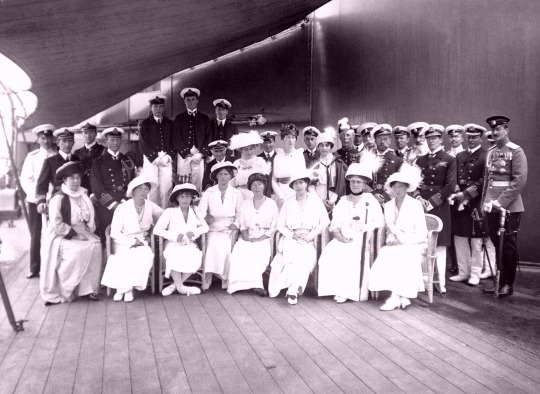
HMS Lion at Kronstadt, June 3, 1914. Olga, Anastasia, Maria, Olga Alexandrovna, Victoria Feodorovna, Alexandra, Tatiana. Second Row: Olga Evgenievna Byutsova, Meriel Buchanan, Ethel Beatty, George Battenberg, George Buchanan, Count Fredericks, Nicholas, Admiral David Beatty, Kirill Vladimirovich.
#otma#romanov#olga nikolaevna#tatiana nikolaevna#maria nikolaevna#anastasia nikolaevna#alexandra feodorovna#nicholas romanov#olga alexandrovna#Victoria Feodorovna#olga byutsova#george battenberg#kyrill vladimirovich#kronstadt
30 notes
·
View notes
Photo


14th June 1914
The Imperial Family onboard the battlecruiser "Lion", 14th June 1914.
First row : Grand Duchess Olga Nikolaevna, Grand Duchess Anastasia Nikolaevna, Grand Duchess Maria Nikolaevna, Grand Duchess Olga Alexandrovna, Grand Duchess Victoria Feodorovna, Tsaritsa Alexandra Feodorovna and Grand Duchess Tatiana Nikolaevna. Second row : Olga E. Byutsova, Meriel Buchanan, Ethel Beatty, George Battenberg, British Ambassador Sir George Buchanan, Count Fredericks, Tsar Nicholas II, Admiral Sir David Beatty and Grand Duke Kirill Vladimirovich.
Photos from: Alexandra Feodorovna's 1912-1916 Album Tatiana Z
#OTMA#alexandra feodorovna#Nicholas II#olga alexandrovna#Victoria Melita Feodorovna#George Battenberg#cyril vladimirovich#olga byutsova#1914#Olga Nikolaevna Romanova#Tatiana Nikolaevna Romanova#Maria Nikolaevna Romanova#Anastasia Nikolaevna Romanova
89 notes
·
View notes
Photo
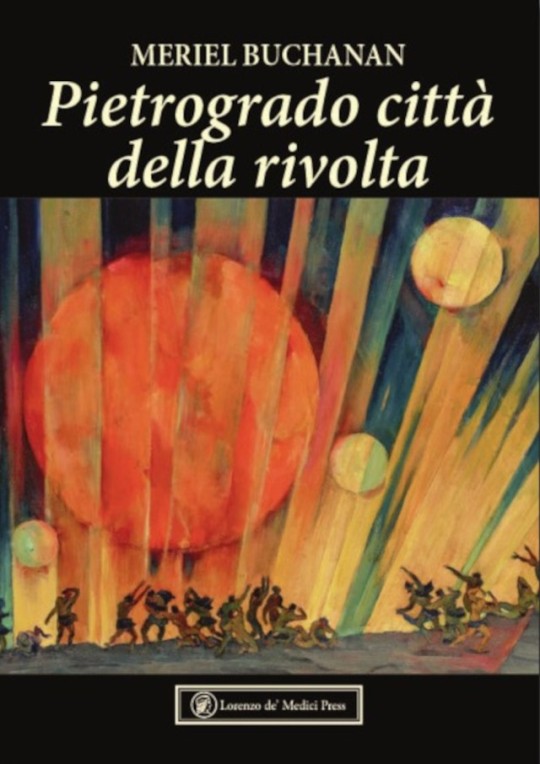
Meriel Buchanan, “Pietrogrado città della rivolta 1914 - 1918”. Prefazione di Hugh Walpole - Traduzione di Silvia Rotondo - Lorenzo de' Medici Press
0 notes
Photo

William Mason (1906-2002) was a British Impressionist painter born in Newport, Wales, who studied at Newport College of Art and the Royal College of Art. Aside from painting he also taught at Scarborough School of Art and at St. Albans School of Art. Mason exhibited at the McClelland Galleries in Belfast and with the RA. ‘Child of Sir George & Lady Buchanan’ c.1950, in oil pastel, 33x28cm Meriel Buchanan (1886-1959) memoirist & novelist was the only child of Sir George & Lady Buchanan, the last British Ambassador to Imperial Russia. She wrote two sets of memoirs about her experiences. #sheppertoncarbootsale (at Hanworth, Hounslow, United Kingdom) https://www.instagram.com/p/CVFXb7vIW1J/?utm_medium=tumblr
0 notes
Photo




Princess Alix of Hesse, later Empress of Russia photographed in 1875.
“Her fourth daughter, who had been given the name of Alix, because the Germans pronounced Alice in such a dreadful way, was such a merry little person. “She is,” Princess Alice told the Queen, “quite the personification of her nickname, “Sunny.” - Meriel Buchanan, Queen Victoria’s Relations (x)
173 notes
·
View notes